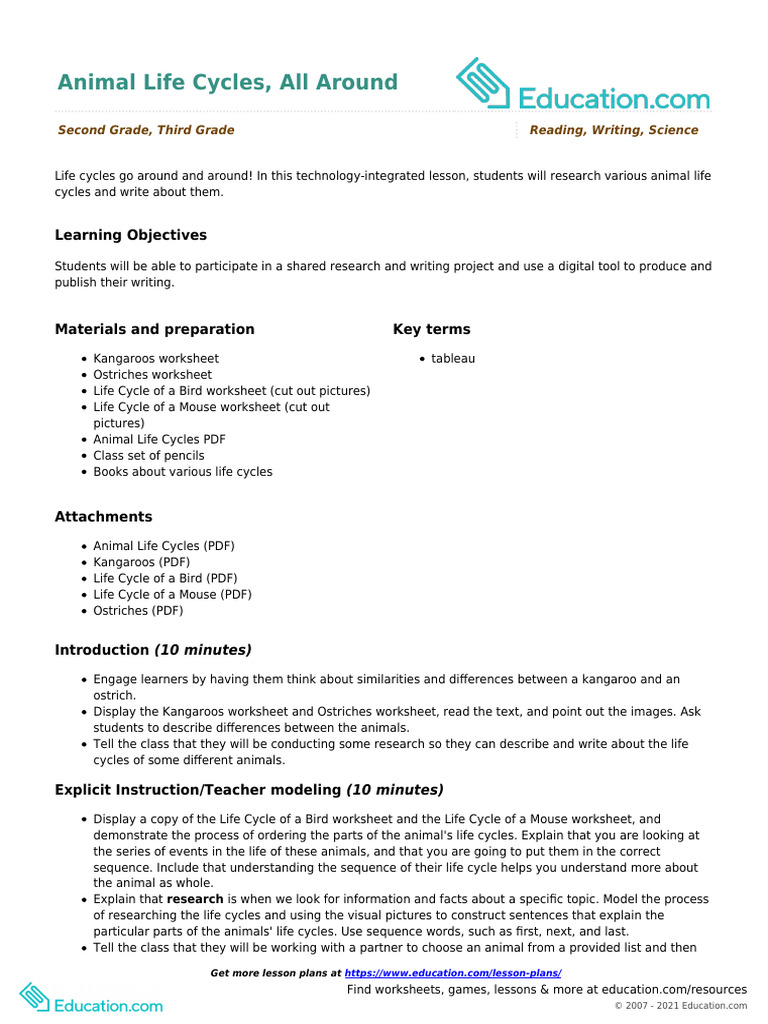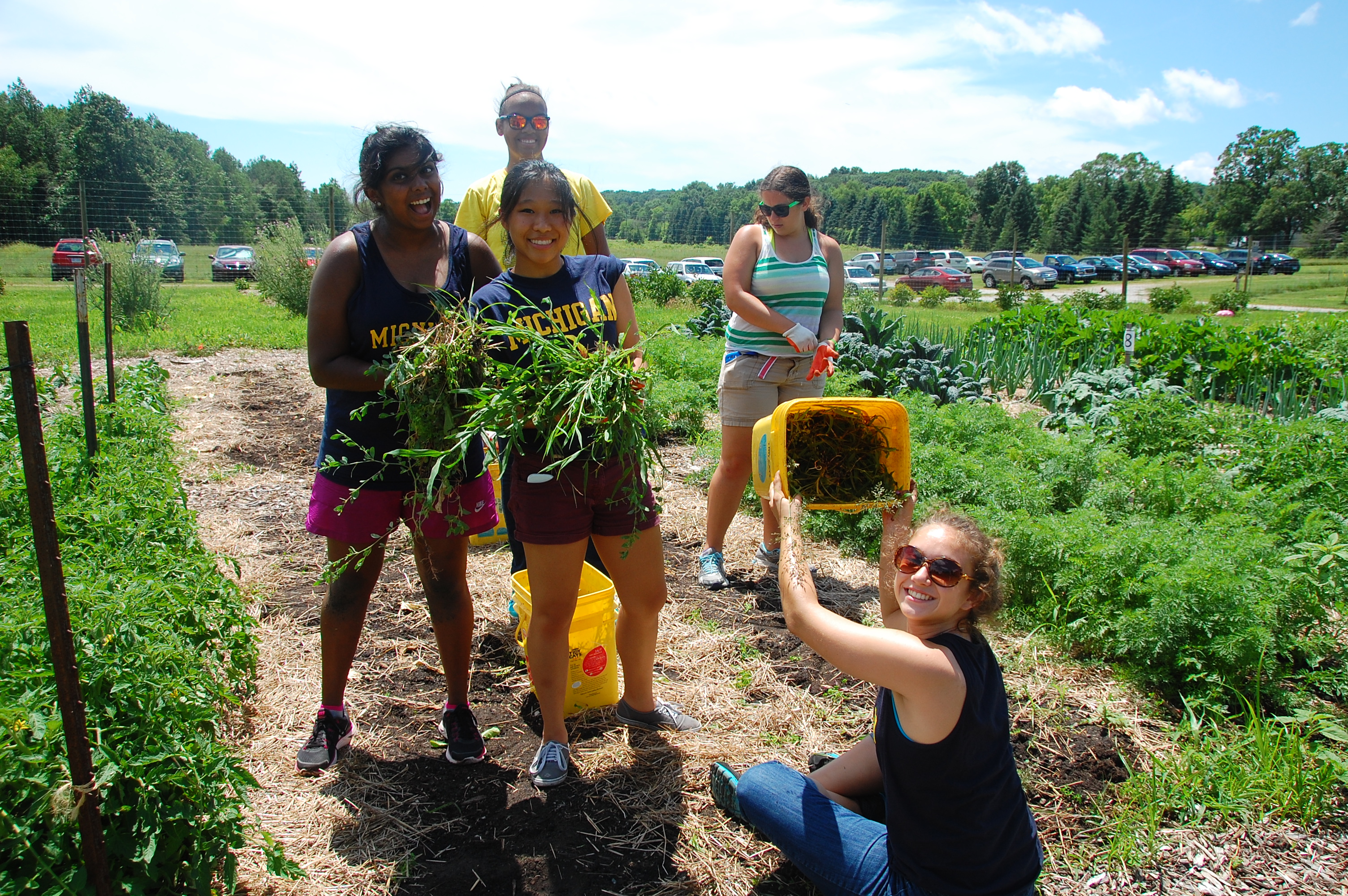Understanding Life Cycles Through Campus Farm Animal Observation

Table of Contents
Have you ever wondered about the incredible journey of life, from a tiny seed sprouting into a towering tree or a single cell developing into a complex organism? The wonder of life cycles is captivating, and there's no better way to understand this fascinating process than through direct observation. Campus farm animal observation provides a unique, accessible, and hands-on learning experience, allowing you to witness the complete life cycle of various species up close.
Observing Different Life Cycles on the Campus Farm
Campus farms offer a diverse range of animals, each presenting a unique opportunity to study their life cycle. Let's explore a few examples:
Chickens: A Poultry Perspective on Avian Life Cycles
The life cycle of a chicken is a relatively fast-paced and easily observable process. It begins with the egg, a marvel of nature containing all the necessary components for a new life.
- Incubation Period: Approximately 21 days of careful incubation are needed before a chick begins to peck its way out of the shell.
- Chick Development: Newly hatched chicks are incredibly vulnerable, relying entirely on their mother hen (or human caretakers) for warmth and food. They rapidly grow, developing feathers and learning essential survival skills.
- Pullet Stage: Young female chickens (pullets) reach sexual maturity after several months, marked by the development of their reproductive organs.
- Hen Stage: Mature hens begin laying eggs, continuing the cycle anew. This egg production is a crucial aspect of poultry farming and avian life cycle understanding. Observing the transition from chick to laying hen is a truly rewarding experience.
Keywords: poultry, avian life cycle, egg production, chick development
Pigs: The Swine Life Cycle from Piglet to Breeding Sow
Pigs, also known as swine, present a different perspective on mammalian life cycles. Their journey from piglet to breeding sow is a fascinating study in growth and reproduction.
- Gestation Period: A sow's gestation period is approximately 114 days, during which the developing piglets grow inside her.
- Weaning Process: Piglets are weaned from their mother's milk after several weeks, transitioning to solid food.
- Growth Stages: Pigs go through distinct growth stages – weaner, grower, and finisher – before reaching market weight.
- Reproduction Cycle: Mature female pigs enter a reproductive cycle, allowing for continued generations of piglets. Understanding this pig farming aspect contributes to overall comprehension of the swine life cycle.
Keywords: swine, pig farming, gestation, piglet development
Sheep and Goats: Observing Ovine and Caprine Life Cycles
Sheep (ovine) and goats (caprine) are common livestock found on many campus farms, providing opportunities to observe similar yet distinct life cycles.
- Gestation: Both sheep and goats have gestation periods of around 150 days.
- Birth (Lambing/Kidding): The birth of lambs and kids is a remarkable event to witness, showcasing the incredible resilience of nature.
- Weaning: Young lambs and kids are weaned from their mothers’ milk, beginning their transition to solid food.
- Fleece/Wool Growth: Sheep are prized for their wool, and observing its growth provides insight into the animal's development.
- Breeding Season: The breeding season for sheep and goats varies depending on the breed and climate.
Keywords: ovine, caprine, livestock, lambing, kidding
Other Animals: Expanding Your Campus Farm Animal Observation
Many other animals may inhabit your campus farm, providing further opportunities for observation. Rabbits exhibit rapid reproduction, while cows showcase the life cycle of larger mammals. Each species contributes to a broader understanding of biodiversity and ecological processes. Remember to research the specific species present on your local campus farm to maximize your learning experience.
Educational Benefits of Campus Farm Animal Observation
Campus farm animal observation offers numerous educational benefits beyond simply learning about life cycles.
Hands-on Learning: Engaging with Experiential Education
Direct observation significantly enhances understanding compared to textbook learning.
- Increased Engagement: Students are actively involved in the learning process, leading to greater interest and motivation.
- Better Retention of Information: Hands-on experience strengthens memory and comprehension.
- Development of Observation Skills: Observing animals closely fosters critical thinking and improves attention to detail.
Keywords: experiential learning, hands-on education, active learning, observation skills
Connecting with Nature: Fostering Appreciation for Biodiversity and Animal Welfare
Spending time with animals promotes a deeper connection with nature and fosters respect for living creatures.
- Appreciation for Biodiversity: Exposure to different species broadens students’ understanding of the natural world.
- Understanding Animal Behavior: Observing animals provides insight into their behavior, social structures, and communication.
- Respect for Living Creatures: Direct interaction with animals fosters empathy and responsibility towards animal welfare.
Keywords: environmental education, nature connection, animal welfare, biodiversity
Curriculum Integration: Enhancing STEM and Agricultural Education
Campus farm animal observation can be effectively integrated into various school curricula.
- Lesson Plans: Teachers can develop lesson plans focusing on life cycles, animal behavior, and ecological concepts.
- Field Trips: Organized field trips to the campus farm provide students with a valuable hands-on learning experience.
- Research Projects: Students can conduct research projects on various aspects of animal life cycles and farm management.
Keywords: STEM education, science curriculum, agricultural education, field studies
Practical Considerations for Campus Farm Animal Observation
To ensure a safe and enriching experience, certain practical considerations are crucial.
Safety Precautions: Prioritizing Farm and Animal Safety
Safety around farm animals is paramount.
- Supervision: Always ensure adequate supervision, especially for younger children.
- Handwashing: Thorough handwashing before and after interacting with animals is essential.
- Appropriate Clothing: Wear appropriate clothing and footwear to protect yourself from potential hazards.
- Avoiding Sudden Movements: Avoid sudden movements that could startle the animals.
Keywords: farm safety, animal safety, risk assessment, responsible animal handling
Ethical Considerations: Ensuring Humane Treatment and Responsible Observation
Ethical treatment of animals is essential during observation.
- Observing Without Disturbance: Observe animals from a distance and avoid disturbing their natural behavior.
- Respecting Their Space: Respect the animals' personal space and avoid causing them stress or fear.
- Following Farm Guidelines: Adhere to the farm’s guidelines and regulations regarding animal interaction.
Keywords: animal welfare, ethical research, responsible observation, humane treatment
Access and Resources: Utilizing Campus Resources for Educational Enrichment
Many universities offer resources to facilitate campus farm animal observation.
- Contact Information: Contact the campus farm to inquire about visiting hours, guided tours, and educational programs.
- Website Links: Check the farm's website for additional information and resources.
- Scheduling Information: Schedule your visit in advance to ensure availability and a smooth experience.
Keywords: campus resources, farm tours, educational programs, university farm
Conclusion
Campus farm animal observation offers a unique and invaluable opportunity to understand the intricacies of life cycles. This hands-on learning experience fosters a deeper connection with nature, enhances educational outcomes, and promotes respect for living creatures. By actively observing different species and their developmental stages, we gain a profound appreciation for the wonder of life. Start your journey of understanding life cycles through campus farm animal observation today! Visit your local campus farm and witness these incredible life cycles firsthand.

Featured Posts
-
 Gerard Butler Movie Unexpected Netflix Triumph After Theatrical Failure
May 13, 2025
Gerard Butler Movie Unexpected Netflix Triumph After Theatrical Failure
May 13, 2025 -
 Observing Life Cycles A Students Guide To Campus Farm Animals
May 13, 2025
Observing Life Cycles A Students Guide To Campus Farm Animals
May 13, 2025 -
 Kyle Tucker Trade Cubs Fans Angry Response
May 13, 2025
Kyle Tucker Trade Cubs Fans Angry Response
May 13, 2025 -
 Billy Bob Thornton Defends Ali Larter And Angela Norris A Landman Controversy
May 13, 2025
Billy Bob Thornton Defends Ali Larter And Angela Norris A Landman Controversy
May 13, 2025 -
 Lywnardw Dy Kabryw Ykhalf Qaedt Lyw Fy Elaqth Aljdydt
May 13, 2025
Lywnardw Dy Kabryw Ykhalf Qaedt Lyw Fy Elaqth Aljdydt
May 13, 2025
